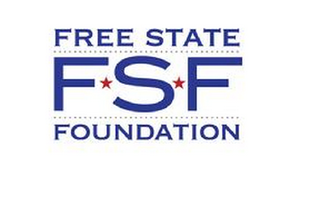Free State on FCC Deal Vetting: Stick To Consumer Welfare

The FCC should stick with a consumer cost-benefit analysis when deciding on the Comcast/Time Warner Cable merger, and that analysis will show that no consumer will lose a choice among providers since the two companies do not compete head to head in providing broadband or traditional video programming.
That was the message from free market think tank The Free State Foundation in comments to the FCC, whose initial comment deadline on the proposed deal is Monday (Aug. 25).
Free State says it is neither endorsing nor opposing the deal — though it finds a lot to like in the deal and not much arguing against it. Rather, it advises the FCC to stick to an economic impact analysis of whether the deal will hurt or harm consumers.
That, says the group, means the FCC "must disregard pleas for it to reject Comcast/TWC out of hand based on appeals to emotional incredulity or irrelevant "big is bad" sloganeering."
It also means "'[standing] firm against calls made - under the guise of protecting competition - to impose conditions on the merger in order to protect market rivals from the competitive process."
As a venture capitalist, FCC Chairman Tom Wheeler suggested deal conditions could morph into rules of more generally applicability, but as chairman has endorsed deal-specific reviews and remedies.
"Further, the Commission must reject dragging out its review process and thereby making itself even more susceptible to political pressures having little or nothing to with the potential consumer welfare benefits of the proposed transaction," says Free State.
Multichannel Newsletter
The smarter way to stay on top of the multichannel video marketplace. Sign up below.
Free State sees a number of potential upsides to the deal, including accelerating the transition from analog to digital cable, faster broadband speeds to more people, boosting enterprise (business services) competition, and expanding wireless backhaul infrastructure.
And if the FCC finds some argument for harm, says the think tank, it should require evidence of actual or likely consumer harm before "even considering" blocking or conditioning the merger.
To check out the full comments, click here.
Contributing editor John Eggerton has been an editor and/or writer on media regulation, legislation and policy for over four decades, including covering the FCC, FTC, Congress, the major media trade associations, and the federal courts. In addition to Multichannel News and Broadcasting + Cable, his work has appeared in Radio World, TV Technology, TV Fax, This Week in Consumer Electronics, Variety and the Encyclopedia Britannica.

